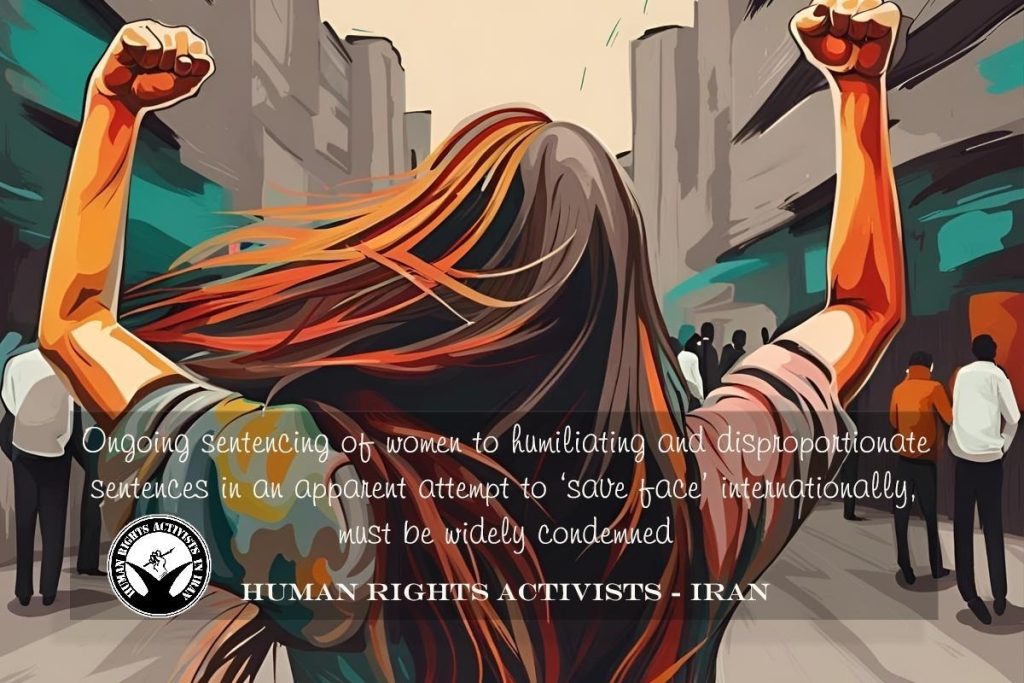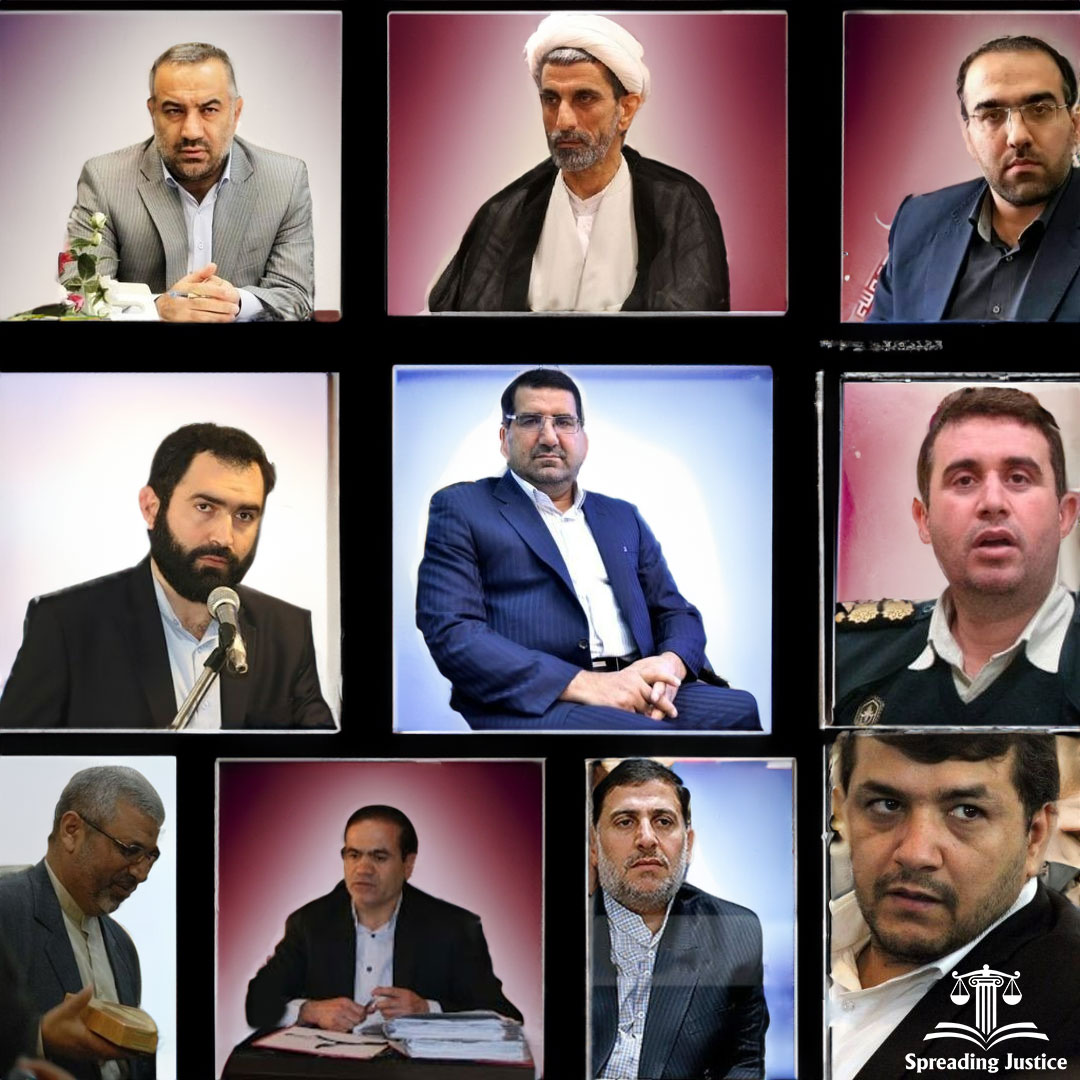Iranian women tell HRA they will continue the fight despite the government’s futile attempts to silence
Last week, despite months of strong condemnation against Iran’s treatment of women and girls, Second Brigadier General Saeed Montazeral-Mahdi released a statement declaring the return of the morality police to the Iranian streets, introducing the “Challenge with Hijab” project. The timing of this announcement is notable as it closely coincides with the one-year anniversary of Mahsa Jina Amini’s arrest and death. On September 13, 2022, Mahsa Jina Amini was arrested for allegedly not wearing the hijab “correctly”. She was held in police custody for several hours, severely beaten, and later transported to the hospital, where she died three days later. This tragic event sparked mass protests across the country for months. According to the sergeant, the morality police are tasked with preserving social norms and maintaining peace within Iranian society. He also warned that individuals who disobey the police orders will face legal action.
In less than a week, several women have already received humiliating sentences. It appears that the regime is focused on shaming women while continuing to crack down on mandatory hijab laws, likely hoping to minimize political consequences abroad. The Iranian Court has started handing down alternative punishments, so far this has included fines, psychological evaluations, cleaning, and barring women from health and education services as opposed to jail sentences.
In recent weeks The Iranian Courts have taken a more severe stance on women who do not comply with wearing the hijab in public. A judicial official claimed that a civil activist who chose not to wear a hijab in public sought to “humiliate women and undermine their efforts to create social change.” Another official accused her of engaging in sexual promiscuity and referred to her as being affected by the “no-hijab infectious disease.” The Courts have resorted to labeling such actions as signs of mental illness and have mandated mandatory psychological evaluation for those who do not wear the hijab. This misuse of psychiatry in Iranian courts has drawn protests from four psychology associations. They argue against such practices and question the ethics of using mental health as a tool for enforcing religious laws.
For instance, Azadeh Samadi, an actress, was sentenced to attend psychological meetings every two weeks, with the claim that it is due to her mental and behavioral state. Similarly, another actress, Afsana Baygan, has received a ban from using the internet, has to write a summary of a book, and has also received mandatory psychological meetings. Additionally, a nurse in Tehran was sentenced to perform free cleaning services in a government building for 270 hours after allegedly being caught by city surveillance cameras violating the mandatory hijab law. In a worrying trend, the use of surveillance cameras as evidence in the Iranian Court systems is becoming increasingly prevalent. Another woman was sentenced to wash dead bodies for a month, as she was allegedly caught on a security camera not wearing a veil while driving. She argued that it fell off while driving, additionally, her appeal was recently rejected by the Court of Appeal.
Furthermore, the head of the Judiciary, Gholam-Hossein Mohseni Eje’I, has called for Special Judges to preside over mandatory hijab cases. He reiterated that hijab removal is against Sharia and the law, and he has asked the heads of general courts to appoint these special judges.
The reinstatement of Iran’s morality police is deeply concerning and raises alarm about the potential harsh consequences for girls and women in the country. One woman expressed to HRA that the government’s re-introduction “amounts to a provocation against women.” This move indicates further regression in terms of gender rights and individual freedoms. They have become the targets of a well-organized and systematic campaign that seeks to inflict humiliation, degradation, and establish control over every facet of their lives. The morality police’s notorious history of enforcing strict religious codes has been associated with increased surveillance and restrictions on freedom of expression. Such measures can disproportionately affect girls and women, curbing their autonomy and limiting their opportunities for education, work, and participation in public life. As a result, the revival of the morality police only exacerbates gender inequality and infringes upon the basic rights and dignity of women in Iran. The use of Iran’s domestic judicial system to justify such sentences only highlights the severe need for judicial reform.
In conversation with HRA about the ongoing situation, one woman stated: “We are compelled to engage in a struggle that has been thrust upon us, but we, as Iranian women, have shown that we are not afraid of any fight until we attain our rights.” The ongoing situation, namely the sentencing of women to humiliating and disproportionate sentences in an apparent attempt to save face internationally, must be widely condemned. Inaction is not an option. Iranian women will not stand idly by. As one woman put it:
“The struggle for gender equality is as old as time. We, as women, have demonstrated through our unwavering belief in reaching our goals, that we are not afraid of this battle. The re-introduction of the Guidance Patrols on the streets is nothing more than a futile attempt by the government that failed to silence us last year. We will continue this fight.”
The dignity, rights, and future of millions of women are at stake. Unjust, disproportionate sentences against women and girls should be immediately reviewed and overturned. Iran must immediately heed the months-long calls by activists and the international community and respect the rights of women and girls in law and in practice.
——————
For further inquiries please contact Skylar Thompson, the Director of Global Advocacy and Accountability at Human Rights Activists in Iran (HRA) at [email protected]


